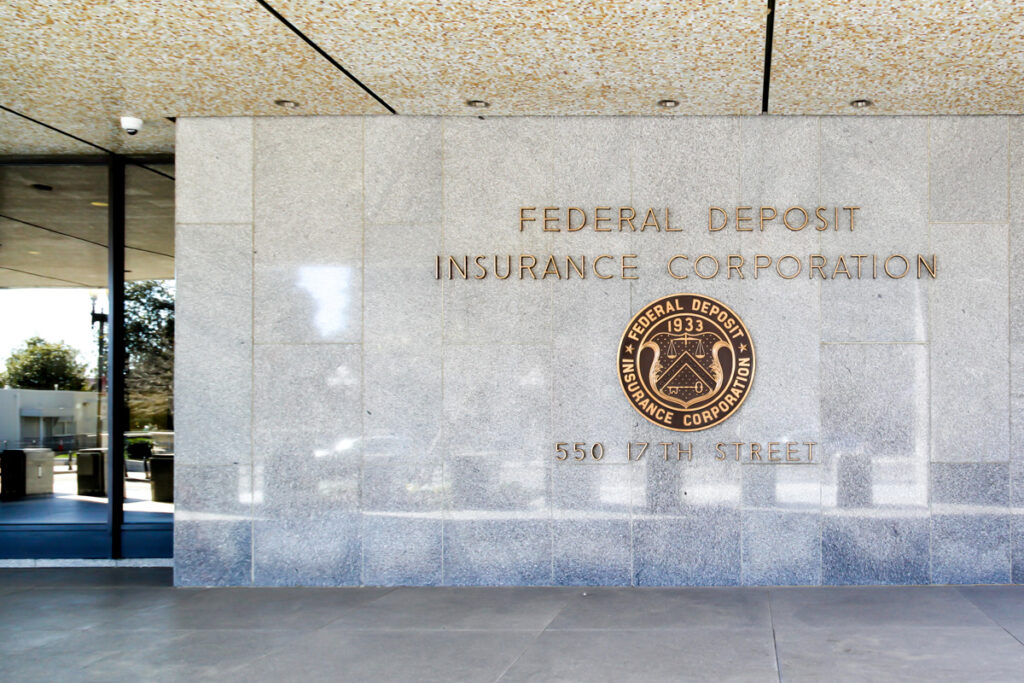Top Class Actions’s website and social media posts use affiliate links. If you make a purchase using such links, we may receive a commission, but it will not result in any additional charges to you. Please review our Affiliate Link Disclosure for more information.

Update:
- The Federal Deposit Insurance Corp. (FDIC) asked a federal judge in Minnesota to dismiss an overdraft fee lawsuit from the Minnesota Bankers Association and Lake Central Bank that attempts to block its ability to issue supervisory guidance.
- Because the banks’ requirement to follow guidelines remains despite supervisory guidance, the FDIC argues the banks don’t have subject matter jurisdiction to change rule enforcement.
- The FDIC would only move to act and create final agency action if banks do not follow supervisory guidance, it says, and the banks would still be responsible for their actions, such as charging multiple overdraft fees for a single transaction.
FDIC overdraft fees lawsuit overview:
- Who: A Minnesota bank and the Minnesota Bankers Association have filed a complaint against the Federal Deposit Insurance Corp. (FDIC).
- Why: The plaintiffs allege the agency overstepped its statutory authority when it issued guidelines and a warning on how to charge consumers non-sufficient funds (NSF) fees.
- Where: The FDIC overdraft fees lawsuit was filed in a Minnesota federal court.
- How to find help: If you believe you were charged illegal overdraft fees, you may qualify to participate in a free overdraft class action lawsuit investigation.
(July 26, 2023)
A Minnesota bank and the Minnesota Bankers Association have filed a lawsuit against the Federal Deposit Insurance Corp. (FDIC) alleging the agency overstepped its statutory authority when it issued guidelines and a warning on how to charge consumers overdraft or non-sufficient funds (NSF) fees.
Lake Central Bank and the Minnesota Bankers Association filed the complaint for declaratory relief and an injunction against the FDIC and its chairman, Martin Gruenberg, on July 20 in a Minnesota federal court, alleging violations of the Administrative Procedure Act.
The complaint came in reaction to a warning and subsequent guidance to FDIC-registered banks regarding NSF funds issued by the FDIC in 2022. The FDIC is an independent agency created by the Congress to maintain stability and public confidence in the nation’s financial system.
Last year, the FDIC said it found banks often charge an NSF fee twice when a transaction is bounced and then resubmitted. In August, it issued a warning and subsequent guidance to FDIC-registered banks regarding the double fees.
It said the fee pile-on violates consumer compliance laws, especially when institutions don’t “fully or clearly describe the institution’s re-presentment practice” in their disclosures.
The agency also said it was prepared to “take appropriate action to address consumer harm and violations of law” regarding banks’ practice of charging consumers repetitive NSF fees on a single transaction, and noted that some banks have already faced class action lawsuits related to NSF fees and disclosures, some resulting in “substantial settlements.”
Plaintiffs say guidance is an overstep of authority
However, in their complaint, Lake Central and the Minnesota Bankers Association claim the guidance is an overreach from the agency.
The pair claim the guidance was “promulgated without adherence to essential administrative procedures,” and called it an “arbitrary and capricious agency action that exceeds the FDIC’s statutory authority.”
“Although the FDIC may evaluate and sanction [unfair and deceptive acts or practices] violations committed by supervised financial institutions on a case-by-case basis, the FDIC cannot mandate sweeping new notice or alert and disclosure obligations, deem specific conduct unfair or deceptive, or retroactively enforce these new mandates by requiring restitution under the direct threat of civil penalties and enforcement actions,” the complaint states.
As a result, Lake Central and the Minnesota Bankers Association seek permanent enjoinment of the guidance and their fees and costs paid.
What do you think of the claims in this FDIC overdraft fees lawsuit? Let us know in the comments.
The plaintiffs are represented by David R. Marshall, Leah C. Janus, Matthew P. Kopp and W. Thomas Wheeler of Fredrikson & Byron PA.
The NSF fees complaint is Minnesota Bankers Association, et al. v. Federal Deposit Insurance Corp., et al., Case No. 0:23-cv-02177, in the U.S. District Court for the District of Minnesota.
Don’t Miss Out!
Check out our list of Class Action Lawsuits and Class Action Settlements you may qualify to join!
Read About More Class Action Lawsuits & Class Action Settlements:
- FTX lawsuit seeks millions it alleges Bankman-Fried, execs misappropriated
- Deutsche Bank fined $186M for failure to address anti-money laundering, sanctions compliance issues
- Virgin Islands files lawsuit against JPMorgan Chase over Epstein ties
- Business owners may lose money due to American Express surcharges















10 thoughts onFDIC seeks dismissal of overdraft fee guidance lawsuit
2 weeks in a row, 2 different branches same bank.One time a night deposit everything written down to put check into checking, instead they placed it in savings. So every transaction that went through or tried to go through failed.I was charged nsf. The following week, different branch. I went through drive thru normal business hours. Please put check into checking, same thing happened. It went into savings. I got hammered again with charges.. Same bank, supposed to have od protection $12 instead of $25. Why when it’s convenient for them am I not on the program and I am being charged the $25? ??? Community first credit union
I was with a bank that also charged overdraft fees I had compiled too many to name so I closed the bank account its sad but the bank closed shortly after karma I guess.. you’re not alone..
Please add me
We bank with 5/3rd and were told they can charge 3 times for the same overdraft.
5/3rd charged me $121 for a $4 overdraft that didn’t even show as an overdraft at the time. I literally stopped banking with them after that
I have banked with Regions hot over 10 yrs
They have always honored my direct deposits with 2 day early access ( state retirement ) 6 months ago they stopped and have been hitting me with Od charges , I was not notified . One day it showed my deposit on the same day as 2 od charges. Can they do this ?
Add me please
I use mutual savings credit union in Birmingham Alabama they over charge draft fees
At least when you go back to check on your statements with chase. You won’t have the problem anymore I promise. It disappeared in thin air. But something smells bad here
Regarding NSFW fees- I have banked with Wells Fargo, Chase, can’t even begin to tell you how many NSF fees were charged – All paperwork still in files and I’ve left those Banks because of that very problem. I am a disabled person and have had a whole disability check taken because of NSF fees. I don’t see how this is legal and for getting a advocate to help, that lacks way behind my comprehensive, I do have a TBI ?